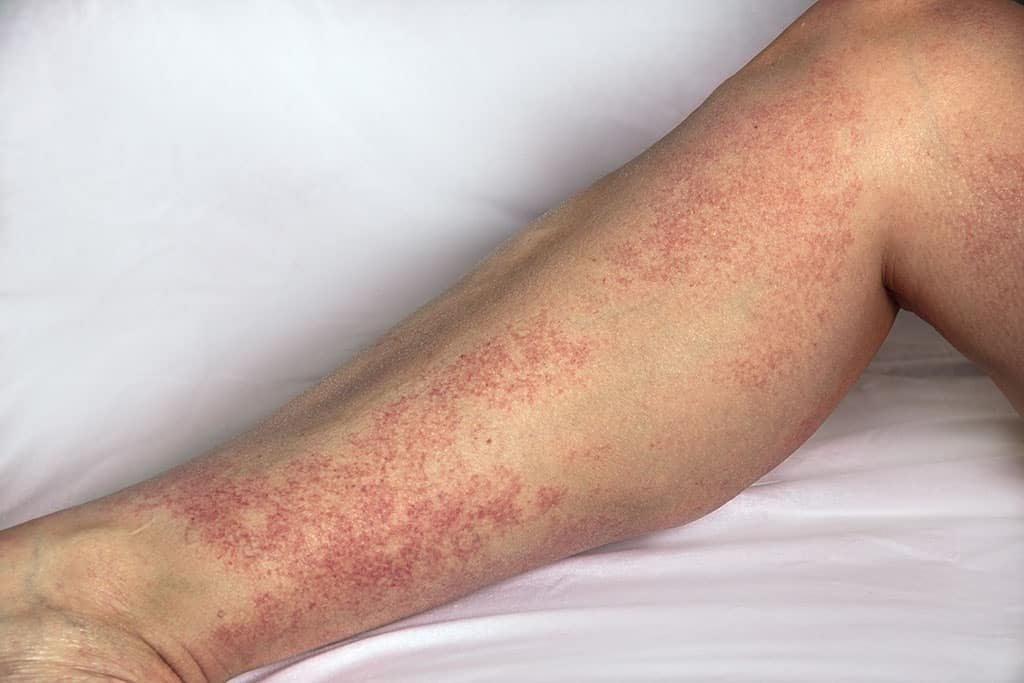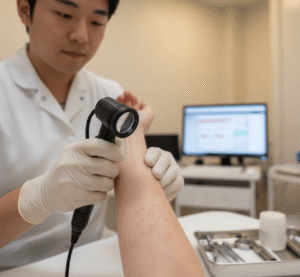Overview
Systemic vasculitis refers to a group of disorders characterized by inflammation of blood vessels throughout the body. This inflammation can cause vessel wall thickening, weakening, narrowing, or scarring, leading to restricted blood flow and potential damage to organs and tissues. In Korea, systemic vasculitis is recognized as a rare but significant autoimmune condition that requires prompt diagnosis and multidisciplinary treatment.
What is Systemic Vasculitis?
Systemic vasculitis is an umbrella term for various diseases that involve inflammation of blood vessels, including arteries, veins, and capillaries. The condition can affect any organ system and may be primary (autoimmune) or secondary to infections, medications, or other diseases.
Common types include:
- Giant cell arteritis
- Takayasu arteritis
- Granulomatosis with polyangiitis (GPA)
- Microscopic polyangiitis (MPA)
- Behçet’s disease (more prevalent in East Asia, including Korea)
Symptoms
Symptoms vary depending on the type and location of affected vessels but may include:
- Fever, fatigue, and weight loss
- Muscle and joint pain
- Skin rashes or ulcers
- Numbness or weakness in limbs
- Vision problems
- Shortness of breath or chest pain
- Blood in urine (renal involvement)
- Abdominal pain or gastrointestinal bleeding
Causes
The exact cause is often unknown but may involve:
- Autoimmune response where the body attacks its own blood vessels
- Genetic predisposition
- Environmental triggers (e.g., infections, toxins)
- Certain medications or vaccines
- Chronic inflammatory diseases (e.g., lupus, rheumatoid arthritis)
Risk Factors
- Age (certain types like giant cell arteritis affect older adults)
- Gender (some types are more common in women)
- Ethnicity (Behçet’s disease is more common in Korea and surrounding regions)
- Family history of autoimmune diseases
- Chronic infections such as hepatitis B or C
Complications
Without timely treatment, systemic vasculitis can lead to:
- Organ failure (kidneys, lungs, heart, or brain)
- Stroke or heart attack
- Vision loss
- Permanent nerve damage
- Aneurysm or vessel rupture
- Increased risk of infections due to immunosuppressive treatment
Prevention
There is no guaranteed way to prevent systemic vasculitis, but these measures may reduce risk or help in early detection:
- Routine monitoring in people with autoimmune predispositions
- Avoiding known environmental or infectious triggers
- Prompt treatment of chronic infections
- Regular health checkups if taking immunosuppressive drugs
Treatment Options in Korea
Korea offers advanced and integrated care for systemic vasculitis, particularly at large tertiary hospitals. Key treatment strategies include:
- Immunosuppressive Therapy:
- Corticosteroids (prednisone) to control inflammation
- Cyclophosphamide, Azathioprine, Methotrexate for long-term control
- Biologics such as rituximab (used in ANCA-associated vasculitis)
- Plasma Exchange:
- Used in severe kidney or lung involvement, particularly in GPA or MPA
- Targeted Therapy:
- For Behçet’s disease, Korean hospitals may use colchicine, TNF-alpha inhibitors, or interferon therapy
- Multidisciplinary Care:
- Rheumatologists, nephrologists, neurologists, and ophthalmologists work together in centers like Severance Hospital, Asan Medical Center, and Seoul National University Hospital
- Monitoring & Support:
- Regular follow-ups, imaging, and lab testing (CRP, ESR, ANCA)
- Korean National Health Insurance covers most treatments, reducing patient burden













